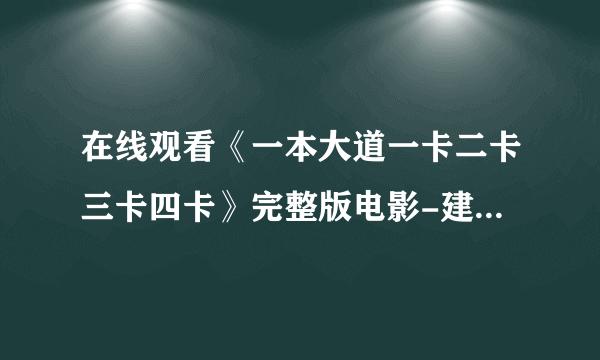japanesehome在线播
的有关信息介绍如下:
Communications
In Japan, business cards are called meishi. Japanese give and receive meishi with both hands. It should be printed in your home language on one side and Japanese on the other. Present the card with the Japanese language side up.
The card will contain the name and title along with the company name, address and telephone number of the businessman. In Japan, businessmen are call "sarariman." A sarariman who does not have a
Take special care in handling cards that are given to you. Do not write on the card. Do not put the card in you pocket or wallet, as either of these actions will be viewed as defacing or disrespecting the business card. Upon receipt of the card, it is important to make a photocopy of the name and title of the individual in your mind. Examine the card carefully as a show of respect.
In a business situation, business cannot begin until the meishi exchange process is complete.
The customary greeting is the bow. However, some Japanese may greet you with a handshake, albeit a weak one. Do not misinterpret a weak handshake as an indication of character.
If you are greeted with a bow, return with a bow as low as the one you received. How low you bow determines the status of the relationship between you and the other individual. When you bow keep your eyes low and your palms flat next to your thighs. The business card should be given after the bow. This is very important to remember.
In introductions use the person’s last name plus the word san which means Mr. or Ms. The Japanese prefer to use last names. Do not request that they call you by your first name only. If you are uncertain about the pronunciation of a name, ask for assistance.
Understand that the Japanese prefer not to use the word no. If you ask a question they may simply respond with a yes but clearly mean no. Understanding this is critical in the negotiation process.
In Asia the number 4 is bad luck, because in Japanese it sounds like the word ‘shuh-shuh’, which sounds like the word for death.
Behavior
The word for toasting is kampai, pronounced 'kahm-pie'. When toasting the glass is never left unfilled. Drinking is an important part of Japanese culture. It is a way to relieve business stress.
Never pour a drink yourself; always allow someone else to do it for you.
Most business entertaining is done in restaurants or bars after business hours. Often in karaoke or "hostess bars." Businesswomen should not attend "hostess bars."
Let the host order the meal and pay. Business may be discussed at dinner during these events.
Japanese rarely entertain in the home. If you are invited to the home of your Japanese host, consider it a great honor and display a tremendous amount of appreciation.
If you are invited to a social event, punctuality is not expected. It is the custom to be "fashionably late."
If you do take your host out insist upon paying. The Japanese will refuse but insist. They will prefer that you choose a Western-style restaurant when entertain them.
Key phrases to learn are "itadakimasu" at the beginning of dinner, and "gochisou-sama-deshita" at the end. It is polite use these phrase and it will show you host that you have enjoyed the meal.
"Sumimasen" (excuse-me) is a very useful term to add to your vocabulary along with the phrase "kekko desu" (I've had enough).
It is perfectly acceptable to slurp your noodles. Doing so will exhibit your enjoyment of your food. To do otherwise, indicates that your meal was not a pleasant one.
Do not openly display money. It is rare to see it given from person to person in Japan. It is important to use an envelope to pass money.
In Asia the number 14 is bad luck, because in Japanese it sounds like the word ‘shuh-shuh’, which sounds like the word for death.
Tipping is not expected.
Gift giving is very important both business and personal gifts - See international business gift giving section.
Style is tantamount. The gift itself is of little importance, the ceremony surrounding it is very important.
Always wrap gifts. The selection of the wrapping paper is critical. Do not give anything wrapped in white as it symbolizes death. Do not use bright colors or bows to wrap the gift. It is better to have the hotel or the store wrap the gift to ensure that it is appropriate.
Do not surprise the recipient with the gift. Give your host some warning during the evening that you intend to give them a present.
Give the gift with both hands and accept gifts with hands.
Generally, gifts will not be opened in your presence. If your host insist that you open the gift do so gingerly. They take pride in gift wrapping, show that you appreciation the effort.
Do not give gifts in odd number or the number four, as odd numbers are bad luck and four sounds like the word for death in Japanese.
Gifts should be given at the end of a visit.
Do not admire anything belonging to your host too closely. The Japanese strive to please; you may be rewarded for your admiration.
The most popular gift giving occasions in Japan are oseibo, which falls at the end of the year and O-chugen which falls during the middle of the year.
Good gift ideas include top choice beef, fruit and alcohol such as brandy, quality whiskey and Bourbon along with excellent wines. They also appreciate gifts from high-end department stores like Saks and Neiman Marcus.
The Japanese frown on open displays of affection. They do not touch in public. It is highly inappropriate to touch someone of the opposite sex in public.
什么意思



